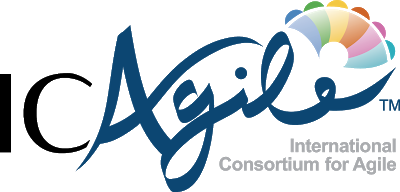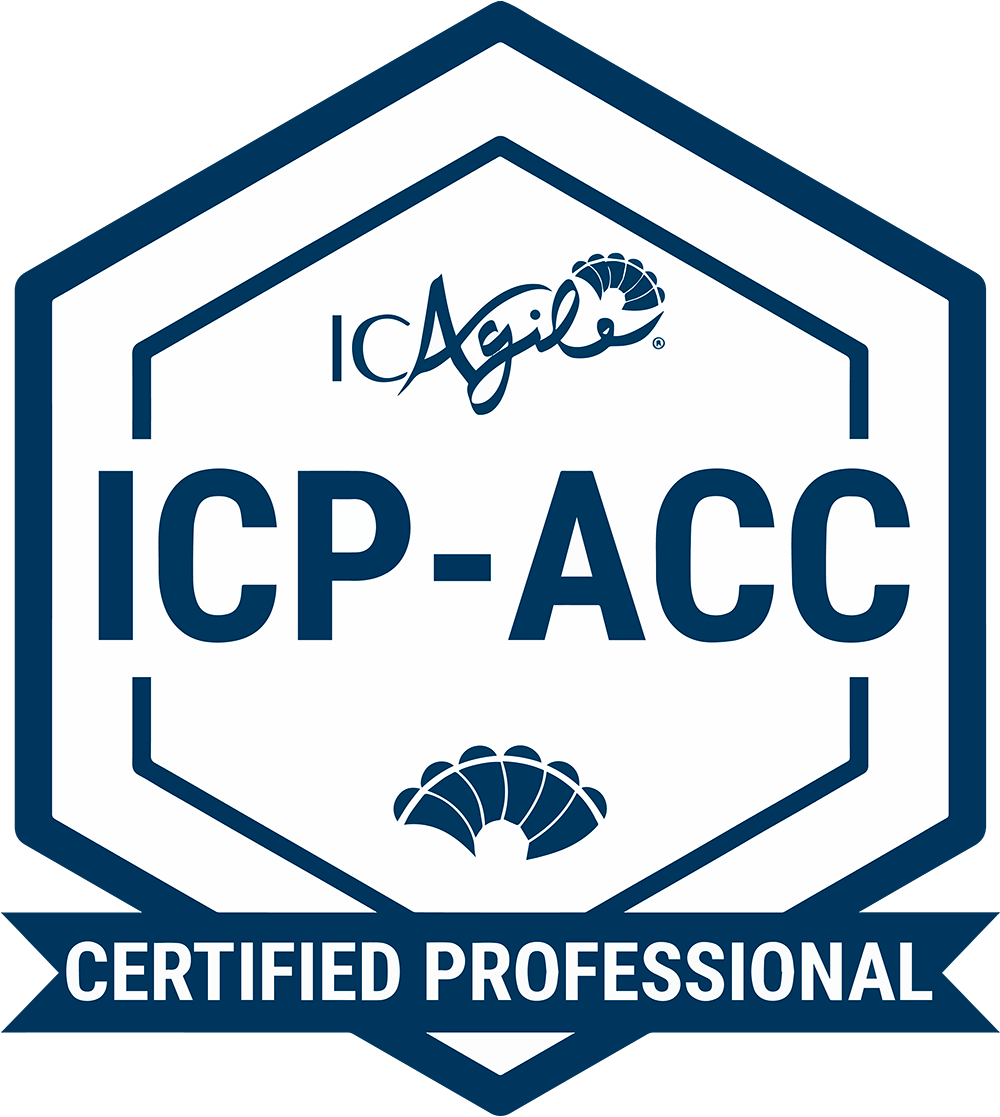Agile Coaching (ICP-ACC)
Includes Agile Coaching (ICP-ACC)® course


What will you receive:
High quality instruction from one of our experienced ICAgile accredited trainers. Also included are:
- ICAgile certification
- Course materials
- Access to exclusive Agile Thinkers Academy Digital library
- Agile Thinkers Academy Slack community
- Agile Thinkers Academy Certificate of Attendance
Attendees will receive the Certification Credential:
This course is accredited by ICAgile, watch the "Your ICAgile Story" presented by Ahmed Sidky, president of ICAgile who introduces your ICAgile-Accredited Class, how to claim your ICAgile certification, and continuing your Agile learning journey with ICAgile's Expert Certifications.
Vídeo: https://youtu.be/Z4BUtwMLbrk
On successfully completing this course, participants will receive ICAgile Agile Coaching (ICP-ACC) certification.
PMI Professional Development Units (PDU)
Attendees may be eligible to apply for PDU towards their continuing education requirements with PMI
Description
The ICP-ACC is one of two Continuous Learning Certifications (CLCs) on the Agile Coaching and Facilitation track. The certification focuses primarily on the mindset, roles, and responsibilities of an Agile Coach. After finishing the certification, the learner will be able to differentiate between and among mentoring, facilitating, consulting, teaching and coaching, and will also gain the skills needed to create a safe environment for meaningful collaboration and healthy conflict resolution within an agile team. This certification introduces participants to foundational team coaching skills and team development concepts for starting and growing teams while focusing on teams and organisations as human systems. A key part of this certification focuses on developing an understanding of the Professional Coaching skillset and the value of honing these skills to serve individuals on an agile team.
Agenda
Topics covered are:
The Agile Coaching Mindset
Responsibilities & Skills of the Coach
Setting Boundaries for Coaching
The Coaching Stance
The Coaching Conversation - Coaching for Action
Professional Coaching Skills
Conducting the Coaching Conversation
Mentoring Agile Roles & Transitions
Mentoring vs Coaching
Teaching the Agile Basics & Mindset Shift
Understanding Team Development
Setting up theTeam Environment
Creating a Team kickoff/startup Agenda
Characteristics of an Agile Team
Coaching the journey toward High Performance
Handling Conflict and Dysfunction within the Team
Handling Organisational Impediments
Planning to facilitate a conflict in a Team
Learning Objectives
By the end of this course, you will be able to demonstrate a good understanding of:
The Agile Coaching Mindset and Modes of Coaching
Understand the responsibilities and skills of the Coach
The Coaching stance
How to conduct the Coaching conversation
Identifying Mentoring Roles and Transactions
How to create a team kickoff/startup agenda
Course Preparation
This course does not have any pre-course preparation.
Course Audience
Agile team leaders or aspiring team leaders with a passion for servant leadership and a desire to learn and practice coaching. Relevant roles include Project Managers, ScrumMasters, Iteration Managers, Agile Coaches and aspiring coaches, Product Owners, analysts, and anyone with the desire to harness the power of coaching.
Prerequisites
- Foundational knowledge of agile principles, values, and mindset.
- Successful completion of Agile Team Facilitation (ICP-ATF) is recommended prior to taking this course.
- Agile coaching experience is recommended.

Training Remotely | Guidelines for a Successful Experience

Congratulations on joining Agile Thinkers remote courses. We are committed to facilitating a pleasant and enriching experience for all our attendees.
That's is why it is critically important that we are clarifying how we're going to work together to be most effective. So, let's develop some working agreements and suggestions to encourage the type of team environment that we want to foster during our training sessions.
Before the training starts:
1. Inform your co-workers/colleagues what will be the time you're attending training, and you shouldn't' be interrupted;
2. Look for a comfortable and quiet place to set your training spot;
3. Reduce distractions, noises and background interference;
4. Test your internet signal and guarantee you have a good connection;
5. Please please take some time to explore the tools and how to login;
6. Visit the toilet 10m before the session starts;
7. Stay hydrated;
8. Bring a notebook and a pen with you;
9. Limit interruptions from family members;
10. Make sure you turn off Outlook, gmail, Slack, WhatsApp, Skype or other sources of interruption;
11. If you can, select flight mode on your phone;
12. Test your earphones.
During Training:
1. While there are no questions, confirm you are mute;
2. Ask for help if you have any questions unmuting yourself or sending a message in chat;
3. Use Chat area to address the trainer some questions. As soon as possible, we will give feedback.
4. Respect the Time-boxes;
5. Be on time so you can deliver on time;
6. Don't accept calls while you're on training unless is extremely necessary and vital for you;
7. Please keep your camera on;
8. It's completely forbidden for students to record audio or video of any kind or take pictures from the sessions without written agreement;
9. For training. and quality assurance purpose of our staff, we can record video, audio and the chat of all sessions;
10. Have fun! Enjoy your course!
Make sure you also check our FAQs
All trademarks mentioned are the property of their respective owners.

